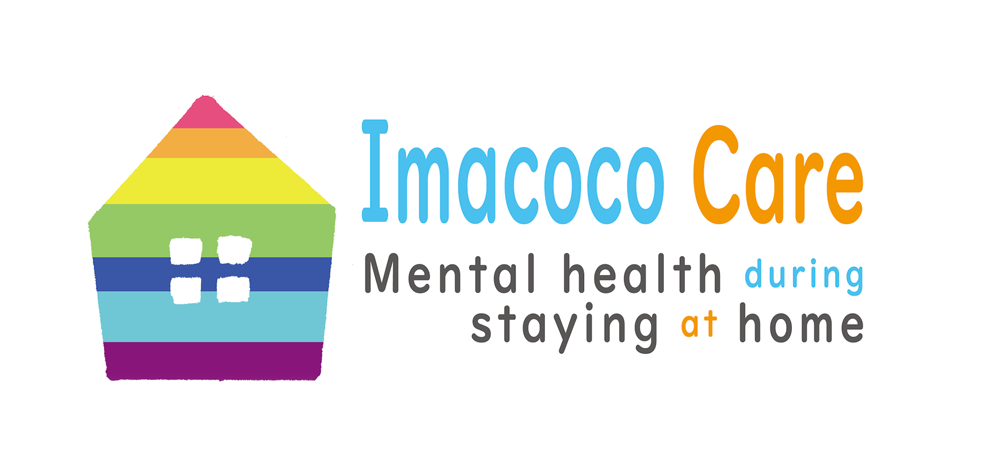This page introduces the scientific evidence for the following techniques included in the Imacoco Care website.
Mindfulness
An operational working definition of Mindfulness is “the awareness that emerges through paying attention on purpose, in the present moment, and nonjudgmentally to the unfolding of experience moment by moment” (Kabat-Zinn, 2003). Many studies reported the effects of Mindfulness on mental symptoms such as depression and anxiety. For example, Goyal et al. (2014) reported that Mindfulness meditation programs had moderate evidence of improved depressive, anxiety, and pain.
■Mindfulness
- Goyal M, Singh S, Sibinga EM, Gould NF, Rowland-Seymour A, Sharma R, Berger Z, Sleicher D, Maron DD, Shihab HM, Ranasinghe PD, Linn S, Saha S, Bass EB, Haythornthwaite JA. Meditation programs for psychological stress and well-being: a systematic review and meta-analysis. JAMA Intern Med. 2014 Mar;174(3):357-68. doi: 10.1001/jamainternmed.2013.13018.
■ Self-compassion
- Rockliff H, Gilbert P, McEwan K, Lightman S, Glover, D. A pilot exploration of heart rate variability and salivary cortisol responses to compassion-focused imagery. Clinical Neuropsychiatry: Journal of Treatment Evaluation. 2008; 5: 132–139.
- Pauley G, McPherson S. The experience and meaning of compassion and self-compassion for individuals with depression or anxiety. Psychol Psychother. 2010 Jun;83(Pt 2):129-43. doi: 10.1348/147608309X471000. Epub 2009 Sep 25.
- Neff KD, Rude SS, Kirkpatrick KL. An examination of self-compassion in relation to positive psychological functioning and personality traits. J Res Pers. 2007; 41(4): 908-916.
- Leary MR, Tate EB, Adams CE, Allen AB, Hancock J. Self-compassion and reactions to unpleasant self-relevant events: the implications of treating oneself kindly. J Pers Soc Psychol. 2007 May;92(5):887-904. doi: 10.1037/0022-3514.92.5.887.
Behavioral Activation
Behavioral activation is one of the essential psychotherapies on improving psychological outcomes such as depression and other stress-related symptoms. Behavioral activation helps to find the habits that are maintaining, or deteriorating, the symptoms of life problems, and to shift them to a more natural, enjoyable, and fulfilling behavioral pattern. Many studies reported the effectiveness of behavioral activation. For example, Ekers et al. (2014) reported that behavioral activation was effective in improving depressive symptoms among patients with depression.
- Ekers D, Webster L, Van Straten A, Cuijpers P, Richards D, Gilbody S. Behavioural activation for depression; an update of meta-analysis of effectiveness and sub group analysis. PLoS One. 2014 Jun 17;9(6):e100100. doi: 10.1371/journal.pone.0100100.
Physical Activity.
Previous studies have shown that physical activity can help improve mental health as well as prevent heart disease, diabetes, and more. It is commonly known that exercise is used to treat depression, and daily physical activity among the non-clinical population can also help reduce depression and anxiety. Besides, physical activity supports mental health by leading to better rhythm and quality of sleep. Any type of physical activity is effective for mental health, aerobics such as running, strength training, or even walking less than 150 minutes a week are effective. Let’s start by increasing the amount of time you spend doing a little bit of activity.
- Mammen G, Faulkner G. Physical activity and the prevention of depression: a systematic review of prospective studies. Am J Prev Med. 2013; 45: 649-657.
- Rebar AL, Stanton R, Geard D, Short C, Duncan MJ, Vandelanotte C. A meta-meta-analysis of the effect of physical activity on depression and anxiety in non-clinical adult populations. Health Psychol Rev. 2015; 9: 366-378.
Improving sleep quality.
Cognitive Behavioral Therapy (CBT) for Insomnia aims to treat sleep disorders applying cognitive restructuring and behavioral change related to sleep. It is also known to be effective in improving depression and fatigue. Even for those who stay at home due to COVID-19, it has been reported that controlling sleep is important to minimizing stress and maintaining a healthy social life.
- Okajima I, Komada Y, Inoue Y. A meta-analysis on the treatment effectiveness of cognitive behavioral therapy for primary insomnia. Sleep Biol Rhythms. 2011;9(1):24-34.
- Ballesio A, Aquino M, Feige B, Johann AF, Kyle SD, Spiegelhalder K, et al. The effectiveness of behavioural and cognitive behavioural therapies for insomnia on depressive and fatigue symptoms: A systematic review and network meta-analysis. Sleep Med Rev. 2018;37:114-29.
- Altena E, et al., Dealing with sleep problems during home confinement due to the COVID-19 outbreak: practical recommendations from a task force of the European CBT-I Academy. J Sleep Res. 2020. doi: 10.1111/jsr.13052. [Epub ahead of print]

